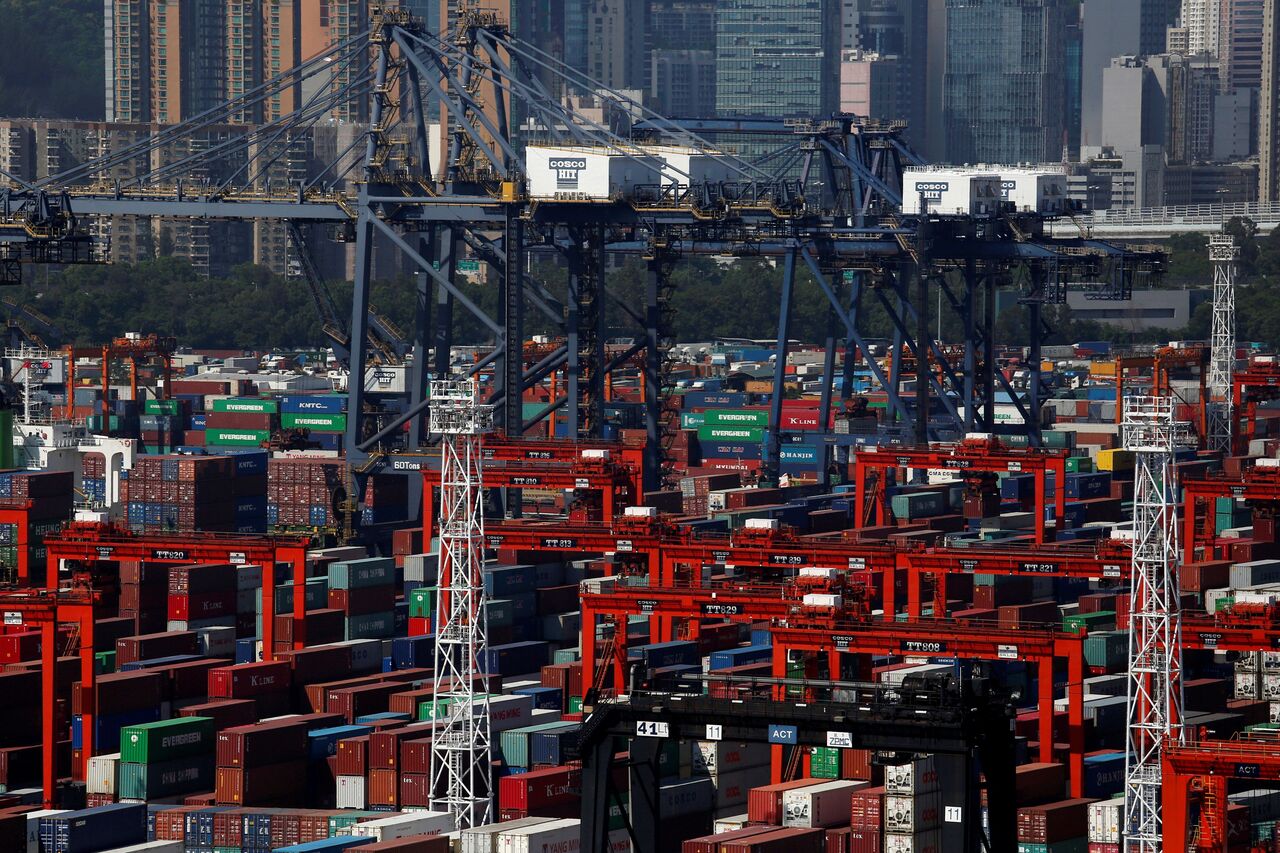Hong Kong Q1 GDP estimates down 8.9 per cent on coronavirus fears
Sign up now: Get insights on Asia's fast-moving developments

The economy contracted 8.9 per cent in the January-March quarter.
PHOTO: REUTERS
Follow topic:
HONG KONG - Hong Kong's economy is expected to have shrunk by 8.9 per cent in the first three months of this year, making it the steepest decline on record since 1974.
Advance estimates on Monday (May 4) showed that gross domestic product (GDP) on a quarter-on-quarter basis fell markedly by 5.3 per cent in the three months, also the steepest on record.
The sharp contraction is driven by "the continued weak performance in both domestic and external demand, as affected by the Covid-19 pandemic", said the government.
Financial Secretary Paul Chan on Monday said Hong Kong's economy has been contracting for four straight quarters now - similar to the global financial crisis in 2008. During the Asian financial crisis in 1998, Hong Kong's economy shrank for five consecutive quarters.
"Although locally the epidemic situation seems to be under control, the external environment is still very challenging.
"Globally, the epidemic is yet to be put under complete control, that will affect our exports, that will also affect international travelling and business investment," Mr Chan said, adding that even if there is a recovery in Q2, it will be "gradual and small".
On April 29, he had announced that the growth forecast for 2020 was revised to -4 per cent to -7 per cent.
Of the key GDP components, private consumption expenditure fell 10.2 per cent in Q1 from a year earlier, while government consumption expenditure measured in national accounts terms grew by 8.3 per cent.
Hong Kong's total exports clocked a year-on-year fall of 9.7 per cent in the same period, weighed mainly by the serious disruptions to regional supply chains and related trading activities amid the threat of the coronavirus outbreak.
Exports of services posted the biggest fall for a single quarter on record at 37.8 per cent, partly reflecting the drastic setback in inbound tourism. Imports of services decreased by 25.4 per cent year on year.
The overall investment expenditure also had a sharp contraction amid pessimistic business sentiments and sluggish construction activity.
Social distancing measures have brought consumption-related activities to a new low, while the government said austere labour market conditions dealt a heavy blow to consumer sentiment.
Relief measures of unprecedented scale, including the two rounds of stimulus under the Anti-epidemic Fund and the massive package of countercyclical measures in the 2020-21 Budget, are expected to cushion the economy and the labour market.
But in the near-term, Hong Kong's exports will remain under much pressure given the large uncertainties.
"Besides, the developments in US-mainland economic and trade relations, geopolitical tensions and global financial market volatility continue to warrant attention," the government said.
On Monday, Hong Kong shares ended the day at 23,613.80, after clocking losses of 4.2 per cent or 1,029.79 points on fears of a renewed China-United States trade war after US President Donald Trump hit out at Beijing over its handling of the coronavirus crisis.

